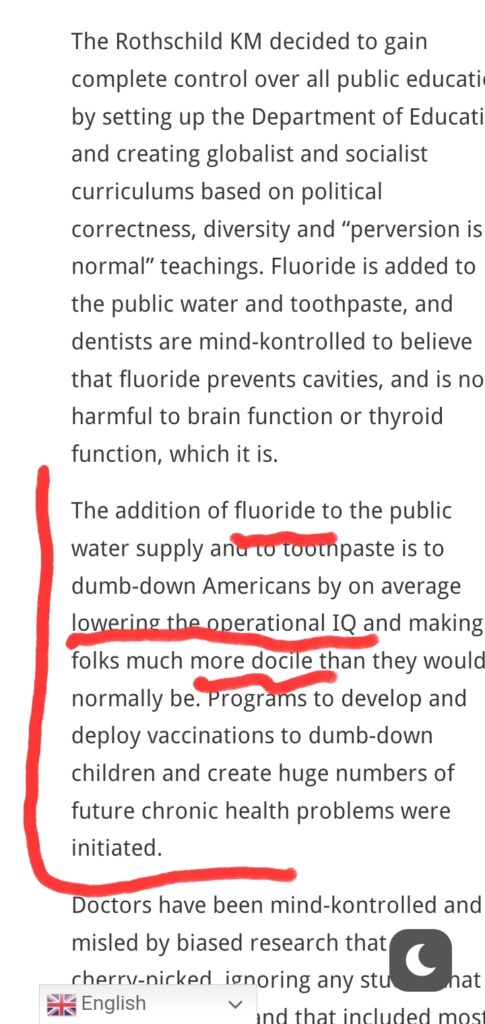Two videos are worth viewing and considering as a set – what does the early history have to do with the more recent history? Hard to know if names and histories of individual scientists was changed during Operation Paperclip.
See: Annie Jacobsen, “Operation Paperclip”, Politics and Prose, Youtube channel.
See: Dr Horowitz, HiV and Ebola GOF history in US research: https://odysee.com/@deNutrients:0/DrHorowitz_HIVandEbola_GOF_history:0
Also of interest:
- Dr Judy Wood re 9/11 evidence Where Did the Towers Go? https://youtu.be/M_pLOvvUpi8
- Project Looking Glass: https://rumble.com/vsbnqp-project-looking-glass.html
- Dr Simone Gold “The truth about the CV 19 vaccine.” https://lbry.tv/@Arkeadius:a/nwnw20210114:c
- Satanist tell all, ick , very detailed, Australian based, but international story https://goldenageofgaia.com/ *This link is now a 404 page but I copied some screenshots to a document. I found my images and was able to find an intro post about it: https://goldenageofgaia.com
- and the full article: https://goldenageofgaia.com/issue-mediation-process-r3/accountability/nwo-essays/frater-616-satanism-and-the-illuminati/


While a search for the quote “The modern media is a pastiche of sex and soft eroticism.” did not find the article, it did show there is a problem that people have noticed and written about. (variation of the search) Totalitarian takeover of a nation generally includes breaking down traditional family partnerships and increasing the exploitation and discrimination of females. See the post: Mass Psychosis and Totalitarian Takeover.
Fluoride being added to the public water was a strategy used in prisons in some places to increase docility and decrease sex drive. Moderately low iodine can cause approximately a 15 IQ point decrease in intelligence, which iodine supplements may improve unless it was since prenatal development. Low iodine also causes apathy, depression and fatigue.

While I didn’t find that article either, Can the Dumbing Down of America be Traced to Fluoridation? (thepanelist.net) is on a similar topic from a more academic perspective. From a dietitian perspective the answer is a strong “Yes“. We now have 3 and a half generations of US citizens born with a possible deficiency of iodine in ratio to the competitive halides in our water, food and medications: fluoride and bromide; and environmental perchlorates (low doses even can affect thyroid function, perchlorates).
Repetitive messaging, nutrient deficiencies, and modern toxins in the food supply and medications are all adding up to a public that is easily manipulated for the purpose of control by some covert internationally linked group.
At some point when the evidence suggests that killers are in charge, it would make sense to stop cooperating with being slowly and painfully maimed and killed. It appears that the US lost WWII by being infiltrated in advance. Related post: Against Our Better Judgement, a book summary.
Disclaimer: This information is provided for educational purposes within the guidelines of fair use. While I am a Registered Dietitian this information is not intended to provide individual health guidance. Please see a health professional for individual health care purposes.

 Food Sources of Thiamin (vitamin B1) include:
Food Sources of Thiamin (vitamin B1) include: